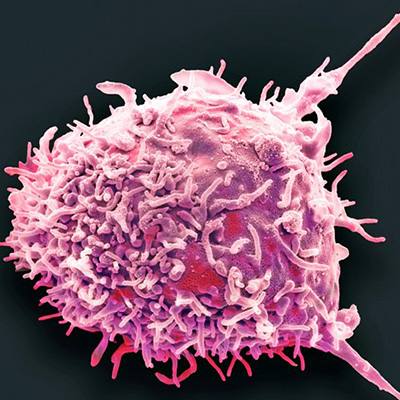-
Individualized Medicine
Preemptive genetic testing: could it help you take charge of your health?

A blood pressure check, an immunization and a cholesterol test – these are all parts of your routine medical care. Someday, a genetic test to identify your risk for developing disease may also be added to the list. In fact, researchers believe that day is fast approaching thanks to the rapid advances in genomic medicine.
That’s why Konstantinos Lazaridis, M.D. and his research team are exploring how healthy people may benefit from preemptive genetic testing. The goal of their research is to learn more about how using whole genome sequencing (WGS), a type of genetic test, with healthy individuals may:
- Affect health outcomes
- Impact healthcare use
- Affect behaviors and feelings of those who undergo WGS testing
“There are approximately 60 known genetic mutations linked to an increased risk of developing specific diseases. This number will most likely grow as precision medicine research advances. Yet there is very little research on the benefit that preemptive WGS testing may offer healthy individuals, who have no known signs or symptoms of disease. With a one-time WGS test, patients may learn information that could help them take charge of their health and help physicians guide their medical care over a lifetime,” says Dr. Lazaridis, associate director, Mayo Clinic Center for Individualized Medicine.
Who will benefit most?
Dr. Lazaridis and his team want to study WGS testing results from 500 people, all participants in the Mayo Clinic Biobank. He and his team are hoping to describe the frequency that healthy individuals bear disease causing genetic variants and identify whether certain groups have higher rates of genetic variants linked to disease risk.
“Our research results may help us detect those healthy individuals who would benefit most from preemptive genetic testing. For example, we may find that those participants with a family history of a specific disease have a higher likelihood of having a relevant genetic mutation that puts them at risk for developing the same condition,” says Dr. Lazaridis.
The ripple effect - how will genetic information impact patients, their families?
According to Dr. Lazaridis, his team is also exploring the psychological and social implications that genetic test results may have on patients and their families.
“We may have participants who learn they have a genetic mutation such as BRCA1 or BRCA2, both associated with an increased risk for breast and ovarian cancer. As part of our research, we plan to conduct periodic surveys to assess how this information impacts these individuals’ future decisions about screening and treatment. We also want to learn how this new knowledge affects the decisions of their family members. For example, did other family members choose to have genetic testing?” says Dr. Lazaridis.
Knowledge is the key – for patients and providers
How can we better understand and act on the preemptive WGS test results as patients and health care providers? That’s a question that Dr. Lazaridis and his team are answering through genomics education for participants and the physicians who care for them.
“We’re working closely with primary care providers to educate them on how to interpret and apply WGS test results, along with other clinical results, to guide patient care,” explains Dr. Lazaridis.
The team has developed educational materials for patients that explain how genomic testing works and how test results may be used to direct their medical care now and in the future.
“The test results of each study participant will become part of their electronic health record and subjects with medically actionable findings will have proper follow up and clinical care. As new genomics discoveries are made in the future, these genetic results may even become more impactful in managing care over their lifetime,” says Dr. Lazaridis.
Join the conversation
For more information on the Mayo Clinic Center for Individualized Medicine, visit our blog, Facebook, LinkedIn or Twitter at @MayoClinicCIM.
Register to attend this year’s Individualizing Medicine Conference. It will be held in Rochester, Minnesota, on Sept. 12-13, 2018.








